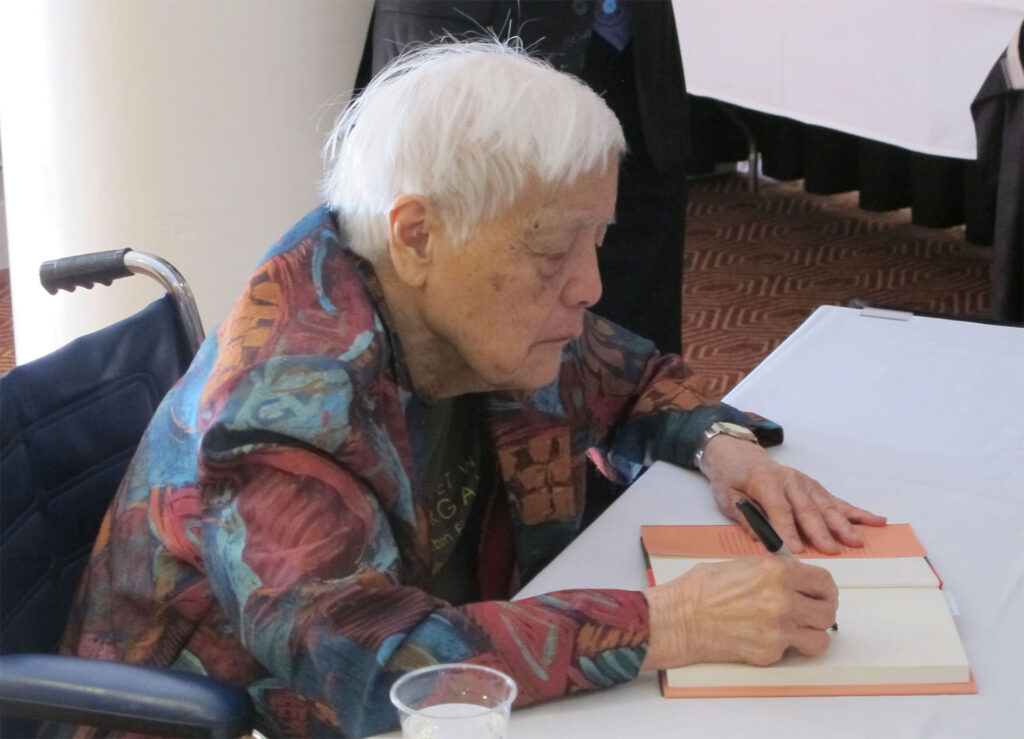By Gillian Ramirez, Alliance Intern from UC San Diego
Grace Lee Boggs’ century-long life (1915-2015) brought immeasurable impact on many lives through her widely recognized civil rights leadership addressing both Black and Asian causes. Born to Chinese immigrant parents, she was not raised in a household that actively promoted or engaged with social justice work. She co-founded the National Organization for an American Revolution (NOAR), a joint community force that united individuals for change. She and NOAR were targeted by the FBI as “radical agitators,” according to the blog Facing Today
She was significantly influenced by Kant and Hegel at Barnard College, later receiving her PhD in philosophy at Bryn Mawr. Despite her education, she had a difficult time finding a stable job due to widespread anti-Asian racism. She couldn’t afford rent with her $10 weekly income from her job at the U of Chicago so she was forced to live for free in a rat-infested basement. This dehumanizing experience led her to relate to the similar plight of so many Black people, and consequently to work in partnership to overcome this and so many other challenges.
Facing Today highlights, “though she had been aware of the levels of poverty and political disempowerment in Black communities, this experience transformed that idea from an abstract concept to an experience that touched her own life and suddenly bound her to this shared struggle.”
She met her husband James Boggs, a Black organizer, in Detroit while working for the radical newsletter Correspondence and they were married for 40 years until his death in 1993. They co-founded NOAR and co-wrote Revolution and Evolution in the Twentieth Century. Smith notes, “At the time, Black-Asian solidarity and coalition building were so absent from the public stage that when Grace was identified as a leader within Detroit’s Black Power movement, FBI authorities wrongly assumed that she must be of both African and Asian descent.”
In the 2013 documentary about Boggs American Revolution: The Evolution of Grace Lee Boggs, she emphasized the value of reflection in effectively enacting social change. She took this opportunity for reflection to mentor and unify the youth in feeling empowered to impact their environments. As part of this mission, Grace and James started Detroit Summer in 1992, which was aimed at rebuilding Detroit.
Boggs was always underselling herself. Humble and truthful, Boggs comments in her documentary that “people began asking me to speak on the Asian American movement and I discovered my ignorance. People are so [eager to identify] icons that they sort of fixated on me though I wasn’t an Asian American icon.” Regardless of the community she was involved in, her decades long social change and community impact needs to be recognized and applauded.

